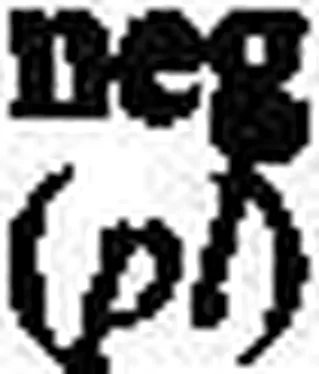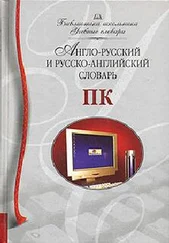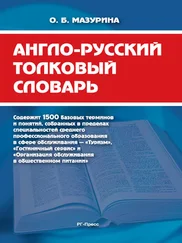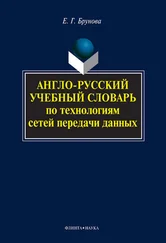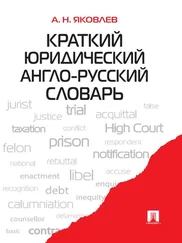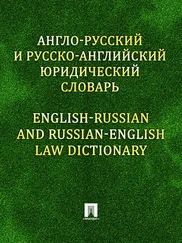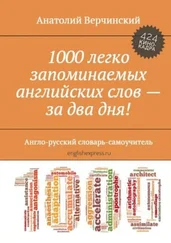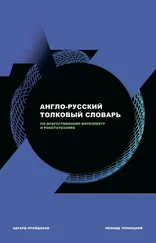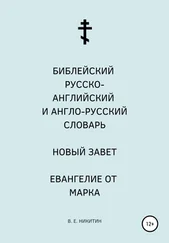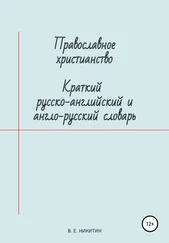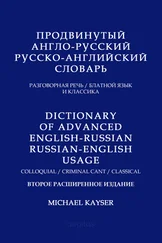Е.А.М.Уилсон - Англо-русский учебный словарь 1984
Здесь есть возможность читать онлайн «Е.А.М.Уилсон - Англо-русский учебный словарь 1984» весь текст электронной книги совершенно бесплатно (целиком полную версию без сокращений). В некоторых случаях можно слушать аудио, скачать через торрент в формате fb2 и присутствует краткое содержание. Год выпуска: 0101, Жанр: Старинная литература, на русском языке. Описание произведения, (предисловие) а так же отзывы посетителей доступны на портале библиотеки ЛибКат.
- Название:Англо-русский учебный словарь 1984
- Автор:
- Жанр:
- Год:0101
- ISBN:нет данных
- Рейтинг книги:4 / 5. Голосов: 2
-
Избранное:Добавить в избранное
- Отзывы:
-
Ваша оценка:
- 80
- 1
- 2
- 3
- 4
- 5
Англо-русский учебный словарь 1984: краткое содержание, описание и аннотация
Предлагаем к чтению аннотацию, описание, краткое содержание или предисловие (зависит от того, что написал сам автор книги «Англо-русский учебный словарь 1984»). Если вы не нашли необходимую информацию о книге — напишите в комментариях, мы постараемся отыскать её.
Англо-русский учебный словарь 1984 — читать онлайн бесплатно полную книгу (весь текст) целиком
Ниже представлен текст книги, разбитый по страницам. Система сохранения места последней прочитанной страницы, позволяет с удобством читать онлайн бесплатно книгу «Англо-русский учебный словарь 1984», без необходимости каждый раз заново искать на чём Вы остановились. Поставьте закладку, и сможете в любой момент перейти на страницу, на которой закончили чтение.
Интервал:
Закладка:
В помощь иностранному читателю в словаре дается целый ряд сведений о русской грамматике в виде помет, пояснений, грамматических комментариев. Особое внимание уделяется трактовке вспомогательных глаголов с учетом их практического перевода на русский язык.
Словарь является совместным изданием, результатом международного сотрудничества между советским издательством «Русский язык» и английским издательством «Пергамон Пресс». Как автор, так и редакторы словаря максимально стремились к тому, чтобы оба языка — как русский, так и английский — были представлены цаиболее живо и соответствовали современным литературным нормам.
При работе над словарем широко использовались словари Collins-Robert French-English English-French Dictionary (1979) и Collins Spanish-English English-Spanish Dictionary by Colin Smith (1975), в которых принципы отбора английского словника близки принципам данного словаря. Орфография английских слов дается также по этим словарям. Использовались в качестве справочников также следующие словари: A. S. Hornby, Oxford Advanced Learner's Dictionary of Current English (1974), «Большой англо-русский словарь» в 2-х томах под ред. проф. И. Р. Гальперина (М., 1980), «Словарь русского языка» С. И. Ожегова (М., 1981), «Орфографический словарь русского языка» (М., 1979).
Замечания и предложения просим направлять в издательство «Русский язык» по адресу: 103012, Москва, Старопанский пер., 1/5.
BIBLIOGRAPHY
For the English Vocabulary I have relied throughout on the Oxford Advanced Learner's Dictionary of Current English (A. S. Hornby). Later J met Professor Colin Smith; I have made much use of the English side of his English-Spanish Dictionary (Collins) and after 1978 of the English side of the Collins-Robert Dictionary. I was particularly encouraged to find that my own approach to lexicography coincided so closely with that of Professor Colin Smith whom I regard as a pioneer in his approach to modern two-way lexicography. I have also found very helpful Volume I of the Oxford Dictionary of Current Idiomatic English (Cowie and Mackin).
On the Russian side my first acknowledgement must be to the admirable Dictionary of the Russian Language by Professor S. I. Ozhegov. I have also used largely the mammoth two-volume New English-Russian Dictionary of Professor Galperin and his many colleagues. I have found Professor Marcus Wheeler's lucid Oxford Russian-English Dictionary an invaluable check-back, and very helpful in its admirable layout of grammatical points. For grammar and syntax I have made extensive use of Russian Syntax (Borras and, Christian) and for quick reference I still use the elementary, but lucid and comprehensive New Russian Grammar of Anna H. SemeonofT (first published in 1934!).
INTRODUCTION
The user.
Coverage (lexis).
The language.
Illustration.
Layout.
Order within an entry.
Translation of headwords.
Grammatical indications.
Stylistic and Field labels.
Indicators of meaning.
NOTES FOR USERS
Order of the entries.
Pronunciation.
Use of the tilde.
Use of the hyphen, and of the hyphen plus vertical stroke.
Use of brackets.
Indicating alternatives: the diagonal stroke, the comma, and "or".
Grammar: treatment of nouns.
Grammar: treatment of verbs.
Verbs of motion with two imperfectives.
The translation of "it".
INTRODUCTION
THE USER
This dictionary is primarily a practical one for the student whose approach to the Russian language will be through English, irrespective of whether he lives in Britain, North America or elsewhere. The vocabulary comprises the words which the average educated man might want to use in speaking or writing Russian, including the simple technical terms in common use.
The criterion for method has been ease in use, or, in the words of James Murray, "eloquence to the eye". Clutter in the text reduces clarity and adds to eyestrain. For this reason cross-references are avoided as far as possible. Much use is made of clearly marked divisions and the dictionary is well provided with indications of style and shades of meaning, and with occasional grammatical notes and cautions. The student should thus be able to find what he wants easily and quickly, without constant recourse either to his grammar or to a Russian-English dictionary.
There is a wealth of illustrative phrases, couched in the language of "everyday** and these should help to give the student the feel of spoken Russian.
COVERAGE (LEXIS)
The nature of the dictionary has determined the vocabulary. Very full treatment has been given to the few basic words which figure so largely in our daily use—do, get, give, go, make, put, way, etc., as also to prepositions. Special attention is paid to verbs in combination with prepositions or adverbial particles, which are usually translated by Russian verbal prefixes. These are of the first importance to the student. All the commoner senses of the selected English headwords have been covered, but not necessarily rare ones. Thus for instance when a verb is nearly always used in the transitive form, although the intransitive form exists (or vice versa), the rare usage may be ignored.
To 'save space, abstract nouns and adverbs derived directly from adjectives are not given, e.g. tender adj нежный is given, but not tenderness n нежность, nor tenderly adv нежно.
In groups of cognate words, such as biological, biologist, biology, one or more of the terms may be omitted. Similarly English words which are translated by direct transliteration into Russian are often omitted, e.g. morgue морг, or nymph нимфа. In such cases it will be easy for the student to form or find these for himself.
THE LANGUAGE
Emphasis has been given to the spoken language—both everyday colloquial uses and more specialized uses, e.g. the' language of the committee man. Many of the examples are given in the second person singular indicating exchanges between friends of the. same age, or colleagues of the same rank, or members of a family. A strong distinction is made between colloquial expressions and slang, the latter being included only if it is well established, partly because it can date so quickly, partly because it is hard to appreciate its exact tone in a foreign language. Translations are as far as possible stylistically matched. Where there is no true equivalent of an English expression such as ghost writer, it has seemed better to omit the term rather than to offer explanations or cumbrous circumlocutions, which the student could equally well form for himself if need arose.
ILLUSTRATION
Читать дальшеИнтервал:
Закладка:
Похожие книги на «Англо-русский учебный словарь 1984»
Представляем Вашему вниманию похожие книги на «Англо-русский учебный словарь 1984» списком для выбора. Мы отобрали схожую по названию и смыслу литературу в надежде предоставить читателям больше вариантов отыскать новые, интересные, ещё непрочитанные произведения.
Обсуждение, отзывы о книге «Англо-русский учебный словарь 1984» и просто собственные мнения читателей. Оставьте ваши комментарии, напишите, что Вы думаете о произведении, его смысле или главных героях. Укажите что конкретно понравилось, а что нет, и почему Вы так считаете.
